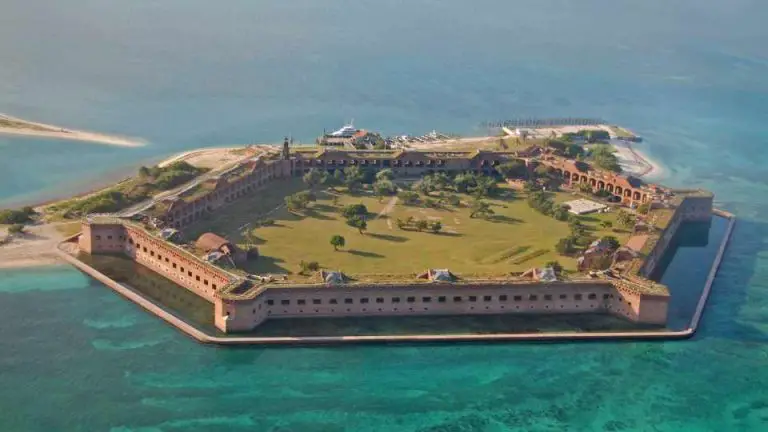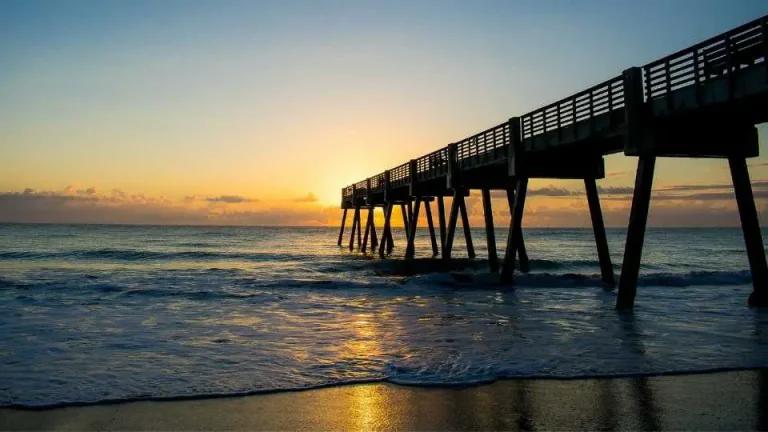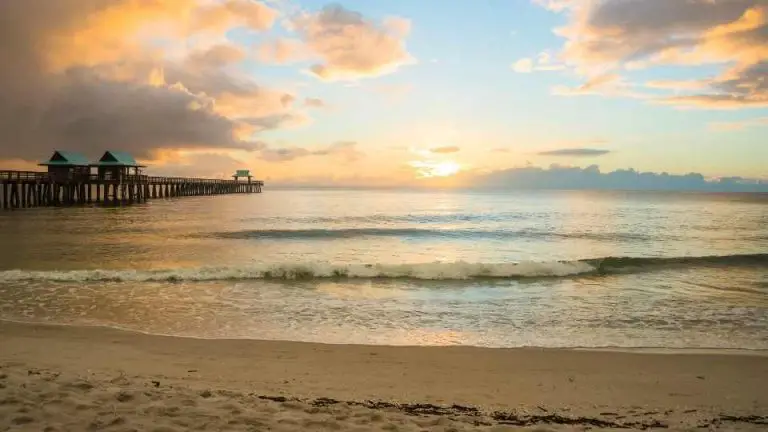What to Do if There is a Hurricane During Your Vacation in Florida
Traveling to Florida offers visitors a chance to enjoy its beautiful beaches, warm climate, and vibrant attractions. However, those who visit during hurricane season, which spans from June through November, may find themselves facing the unique challenges posed by tropical storms and hurricanes. Being prepared for such events is crucial to ensure the safety and enjoyment of any vacation in regions prone to these natural occurrences.
Vacationers should stay informed about potential weather disruptions and understand the necessary steps they should take in the event of a hurricane. This includes knowledge about evacuation routes, local shelters, and emergency procedures. Many tourism-related businesses in Florida, such as hotels and travel insurance providers, have policies and measures in place to accommodate travelers affected by hurricanes, offering options like re-bookings and refunds.
It is advisable for tourists to familiarize themselves with these protocols and consider investing in travel insurance that covers weather-related complications.
Understanding Hurricane Risks
In planning a vacation to Florida, it’s vital to be aware of the potential for hurricanes and understand the associated risks.
Identify Hurricane Season
The hurricane season in Florida typically runs from June 1st to November 30th. During this period, travelers should be particularly vigilant and stay informed on the latest weather updates. Key considerations during hurricane season include:
- Peak Activity: Historically, the greatest likelihood of hurricanes occurs from August to October.
- Location Susceptibility: Coastal areas are more prone to hurricane impacts, although effects can be felt inland.
Recognize Hurricane Alerts
Understanding alerts from the National Weather Service (NWS) is crucial for safety:
- Hurricane Watch: Conditions are possible in the specified area, generally within 48 hours. Travelers should review their safety plans and be prepared to take action.
- Hurricane Warning: Conditions are expected in the specified area, usually within 36 hours. Immediate action is required to ensure safety.
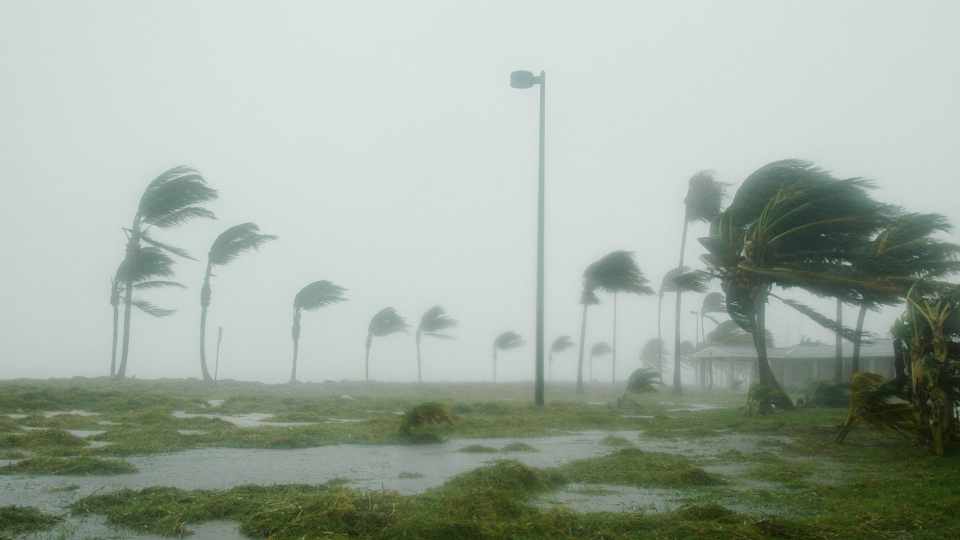
Pre-departure Preparations
Before departing for Florida, travelers should make strategic plans to mitigate the risks of a hurricane. These measures include purchasing insurance, assembling a safety kit, and safeguarding important documents.
Purchase Travel Insurance
Travelers should consider purchasing comprehensive travel insurance that specifically covers natural disasters like hurricanes. This insurance can protect against trip cancellations, interruptions and can provide assistance during emergencies.
- Cancellation Coverage: Look for a policy that includes trip cancellation benefits in case the hurricane disrupts travel plans.
- Emergency Assistance: Ensure the policy offers 24-hour assistance, which can be invaluable in the event of a sudden hurricane.
Create a Safety Kit
A well-prepared safety kit is essential for any hurricane-prone area:
- Emergency Food & Water: Non-perishable food for at least 3 days and a gallon of water per person per day.
- Medical Supplies: A first-aid kit, prescription medications, and any necessary over-the-counter drugs.
- Power Sources: Flashlights with extra batteries and portable chargers for electronic devices.
- Personal Items: Clothes, blankets, and hygiene products.
Backup Important Documents
Keeping copies of important documents can make post-hurricane recovery smoother:
- Identification: Photocopies of personal identification, such as a driver’s license and passport.
- Travel Documents: Copies of travel insurance policies, flight tickets, and hotel reservations.
- Medical Information: A list of prescriptions, healthcare provider information, and health insurance documentation.
Digital backups in a secure cloud storage service can also be highly beneficial, providing access to documents if physical copies are lost or damaged.
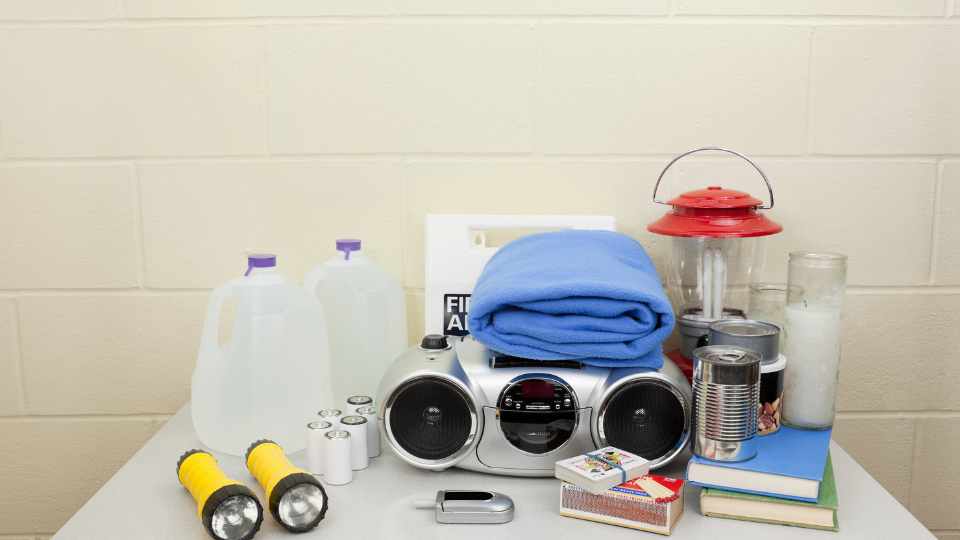
Safety Measures During a Hurricane
When a hurricane strikes, personal safety is paramount. Being prepared and knowledgeable about the necessary safety measures can significantly mitigate risks associated with hurricanes.
Identify Safe Shelter Locations
Individuals should locate the nearest hurricane shelter or designate a safe room within their current residence, such as a basement or an interior room without windows. In Florida, many communities have shelters specifically designed to withstand hurricane winds. It’s crucial to identify these shelters beforehand and plan a route to reach them quickly if the situation calls for it.
Adhere to Evacuation Orders
If local authorities issue evacuation orders, one must follow them immediately. The timing of an evacuation is critical to avoid the high winds and flooding. Before hurricane season, vacationers should familiarize themselves with local evacuation zones and have a plan to travel to a predetermined, safe location away from the affected area.
Maintain Communication Lines
Staying informed is vital during a hurricane. Individuals should have a battery-powered or hand-crank radio to receive weather updates and instructions from local officials. Cell phones should be fully charged, and it’s wise to have backup power sources such as portable chargers. Important contacts, including those of local emergency services and family members, should be easily accessible.
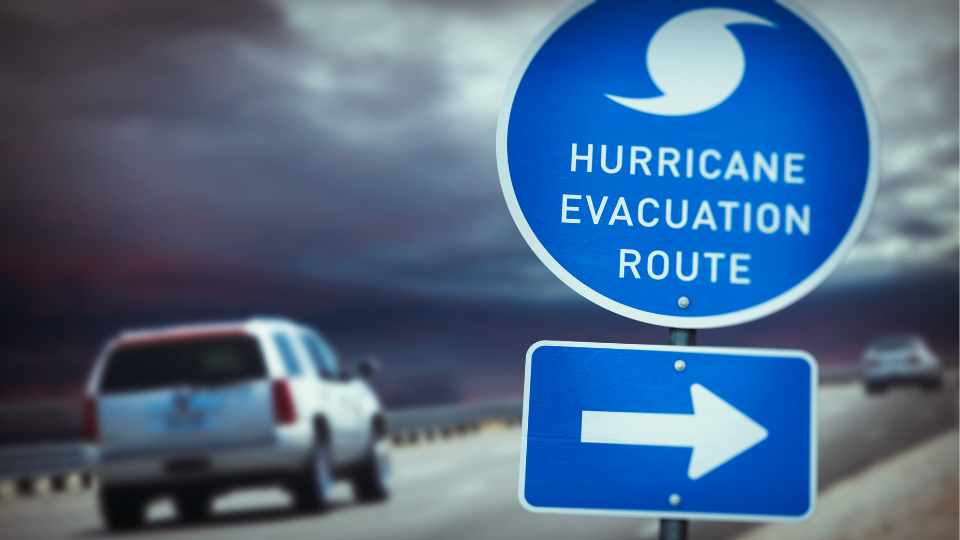
Post-Hurricane Actions
After the hurricane has passed, one’s priority should shift to ensuring personal safety, reaching out to family, and authorities and making necessary arrangements for shelter if the original accommodation is compromised.
Assess Your Safety
Immediate Surroundings: A person should first check their immediate environment for hazards such as downed power lines, gas leaks, and structural damage. It is crucial to avoid any water that may be electrically charged due to fallen power lines.
Seek Medical Attention: If one is injured, they should seek medical help immediately. Local emergency services or shelters may provide first aid and other necessities.
Contact Family and Authorities
Inform Loved Ones: One should promptly contact family or friends to inform them of their safety. If communication lines are down, they can try text messages or social media, as these may work even when phone lines fail.
Report to Local Authorities: It is important to alert local authorities to any dangers such as gas leaks, downed lines, or road blockages. They can reach out to local police, fire departments, or the Federal Emergency Management Agency (FEMA) for assistance.
Plan for Extended Stay or Relocation
- Assess Accommodation: One must evaluate whether their current accommodation is safe and livable. If not, they need to find alternative housing, which may include hotels, shelters, or family homes outside the affected area.
- Check Travel Warnings: Before considering leaving the area, individuals should check for travel advisories. Roads may be impassable or unsafe, and public transportation systems could be disrupted.
- Prepare Financially: If an extended stay or relocation is necessary, individuals should ensure they have the financial means to do so. This includes having access to cash or credit, as local ATMs and banks may not be operational.
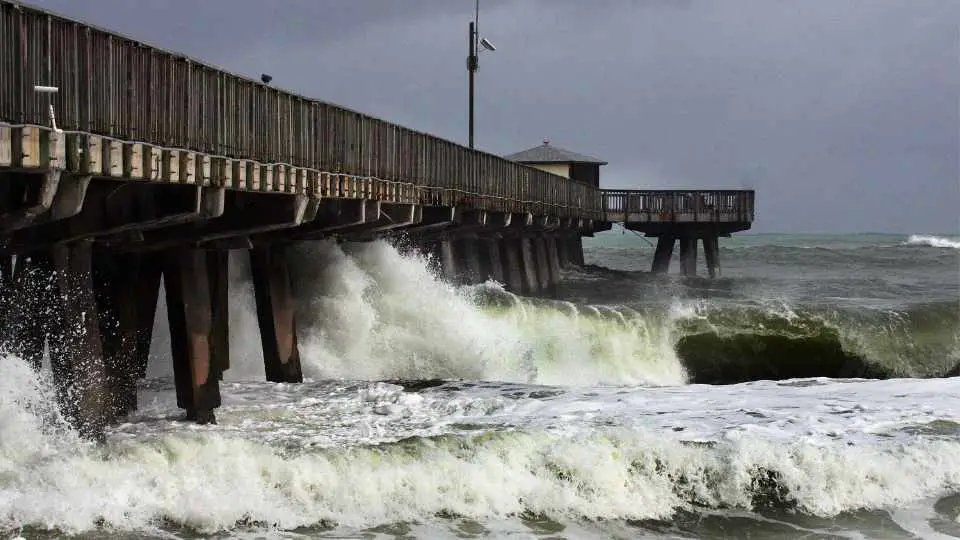
Vacation Planning Strategies
When vacationing in Florida, especially during hurricane season, travelers should prioritize flexibility in their plans and stay informed of local emergency measures.
Choose Flexibility in Itinerary
To mitigate the risks of hurricane disruptions, opt for travel insurance that covers cancellation or interruption due to storms. Look for hotels that offer a hurricane guarantee which often includes refunds or complimentary rebooking if a hurricane impacts your stay. Additionally, consider an adjustable schedule where days and activities can be shifted in response to weather forecasts.
Research Local Emergency Procedures
Prior knowledge of Florida’s emergency procedures is crucial. Tourists should familiarize themselves with evacuation routes and local shelters. Local government websites and travel advisories are valuable resources for up-to-date information on what to do before and during a hurricane. Awareness of contact details for various emergency services in Florida can also enhance safety and preparedness during a hurricane.
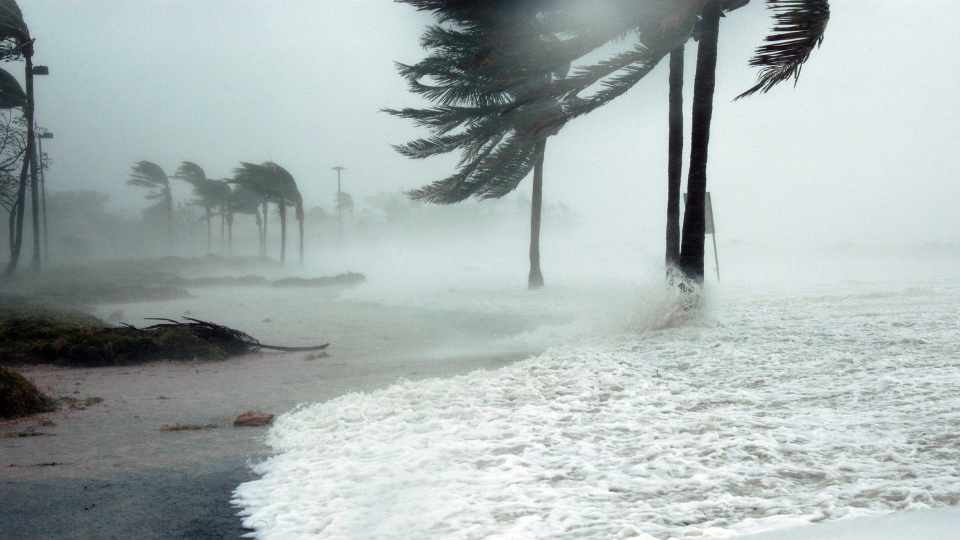
Where Not to be During a Hurricane
During a hurricane, certain locations can be more hazardous than others due to factors such as elevation, proximity to water, and infrastructure. In Florida, which is prone to hurricanes due to its location, the following types of areas are generally considered to be less safe:
- Coastal Areas: Being near the coast can put you at greater risk of storm surges, which are often the most dangerous part of a hurricane. Low-lying barrier islands and beaches can be particularly vulnerable.
- Mobile Homes: Even when properly secured, mobile homes may not withstand the high winds of a hurricane as well as site-built homes.
- Flood Zones: Areas that are prone to flooding are at risk during hurricanes, especially from heavy rainfall and storm surges. This includes areas near rivers, lakes, and low-lying regions.
- High-Rise Buildings: While they are less likely to flood, high-rise buildings can experience stronger winds and potential window damage at higher elevations.
- Areas Near Construction Sites: Flying debris from construction sites can become dangerous projectiles during a hurricane’s high winds.
- Boats and RVs: These are not safe shelters during a hurricane. High winds and rising water levels can cause them to break loose and capsize.
It’s important to heed local evacuation orders and have a plan in place before a hurricane threatens. Florida residents and visitors should be familiar with their evacuation zones and routes, have a disaster supply kit ready, and know where to go to reach safety. Local authorities provide resources and guidance specific to each community’s risks and needs during hurricane season.
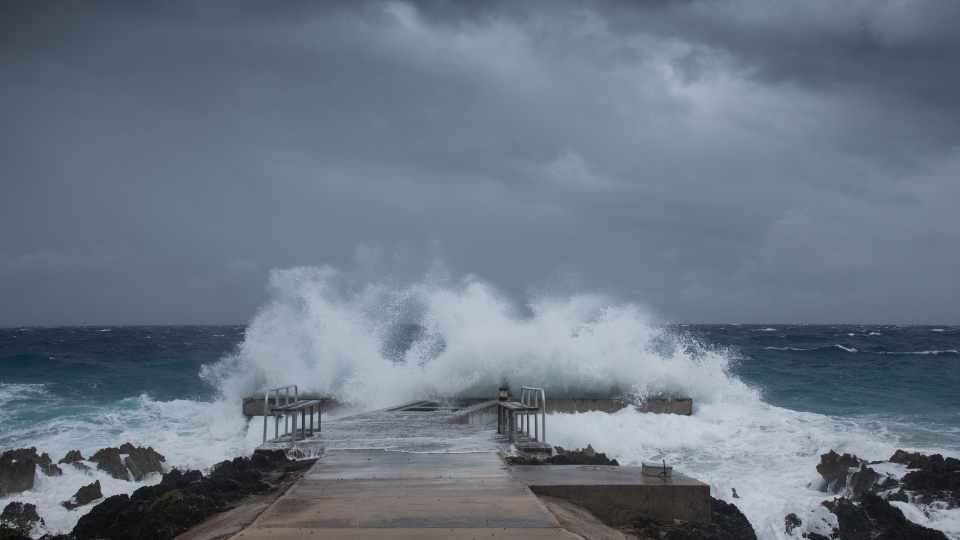
Health and Well-being
When a hurricane is imminent during a vacation in Florida, prioritizing health and well-being is essential. Knowing how to maintain medical needs and manage emotional stress can make a significant difference in one’s experience.
Keep Emergency Medications on Hand
Individuals should ensure they have a sufficient supply of any prescription medications they may need for the duration of their trip, plus a surplus in case of extended displacement. Medication should be kept in waterproof containers to prevent damage.
- Essentials for medication preparedness:
- A detailed list of medications, including dosage and frequency
- Prescription labels and information
- Contact information for prescribing physicians and pharmacies
Manage Stress and Anxiety
Hurricanes can be a source of significant stress and anxiety. Implementing strategies to cope with these feelings is crucial.
- Techniques to manage stress:
- Maintaining a routine as much as possible
- Limiting exposure to continuous news updates to reduce anxiety triggers
Individuals are advised to recognize their emotional responses and seek support from others or professionals if needed.

